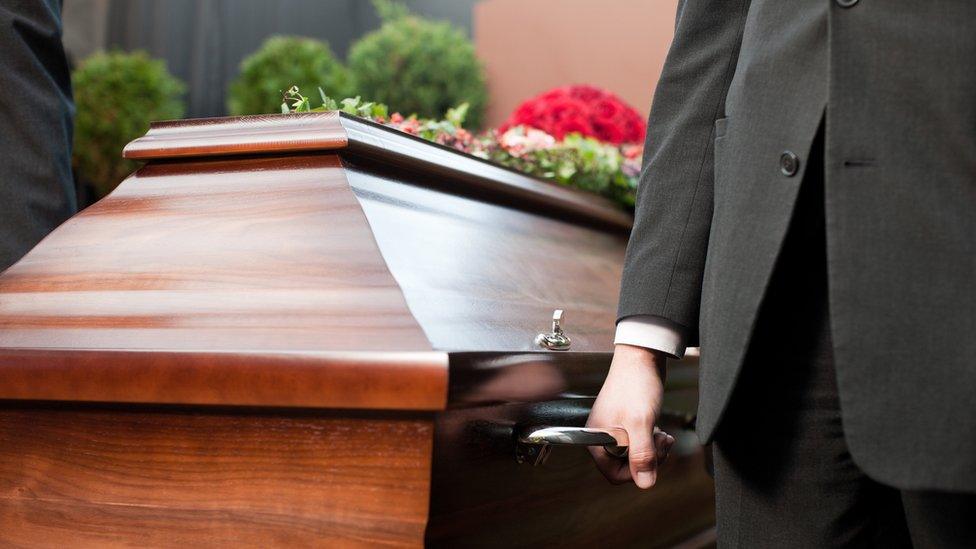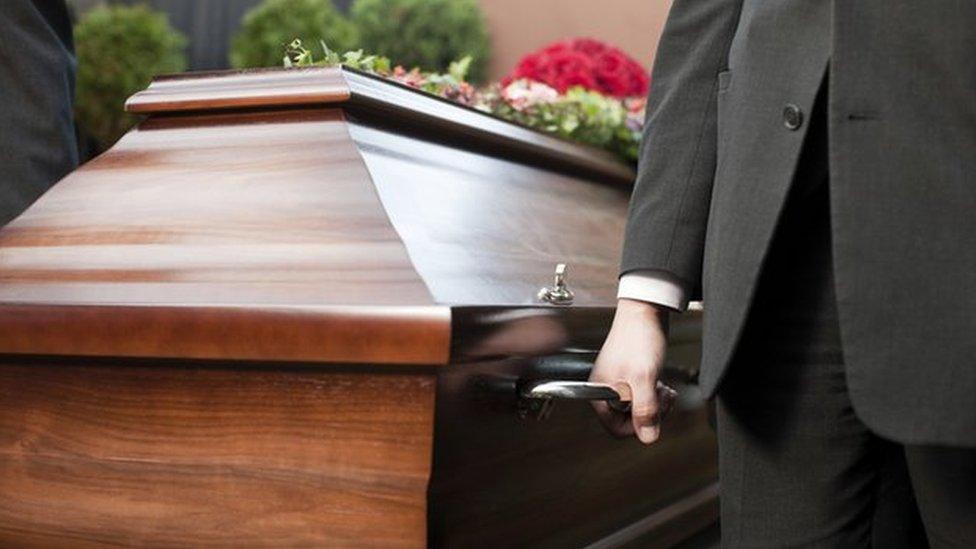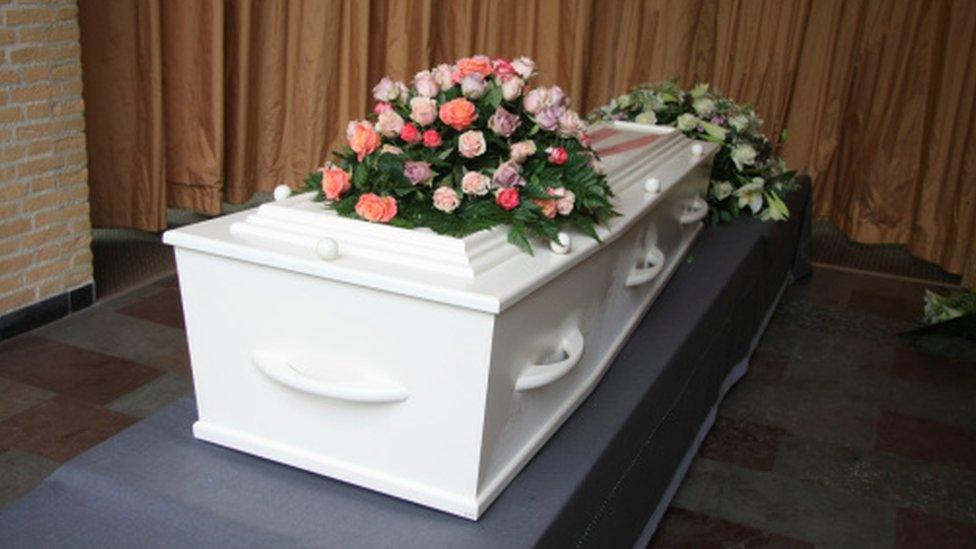Families search for forgotten funerals
- Published

Older people are increasingly saving their loved ones from bearing the cost of a funeral by paying in advance.
But a desire not to talk about death, and in some cases dementia, means many families are left with little detail of what has been organised and paid for.
The funeral plan regulator is dealing with hundreds of cases a year, helping grieving families to trace pre-paid funerals.
Meanwhile, the Alzheimer's Society says more than one million people in the UK will be living with dementia by 2021, with many facing difficulties conducting their finances successfully.
So what can be done by families to prepare for the costs and arrangements when a loved one dies, and is pre-payment of a funeral a good value-for-money option for those wishing to get their affairs in order in later life?

The average funeral in the UK costs about £3,700, with funeral directors' fees rising well above the rate of inflation in recent years, according to a recent report by the Commons Work and Pensions Committee, external.
Even "simple" funerals cost more than £1,200, it found, although the financial support available through the benefits system in England and Wales has been frozen.
The Scottish government, meanwhile, will hold a national conference on funeral poverty on November 16 in Edinburgh after concerns were raised about rising costs.
A report by insurance company SunLife, published this week, suggested that the overall cost of dying - including things such as probate, headstones and flowers in addition to the basic cost of a funeral - has risen by 8.3% in the last year to £8,802.
The cost of the funeral itself has gone up by 5.5% in a year, it found.
Costs are rising but, it seems, most people are unaware of that happening and few want to think about it.
A survey by the Funeral Planning Authority (FPA), which was set up by the pre-paid funeral industry to regulate the sector, found that only 14% of those asked could give an accurate estimate of the cost of a funeral.
The sector - serving people who wish to pay for their funeral in advance - is growing, but the FPA says one major problem is that families are unaware of the plans put in place by their late relatives.
It takes on about eight to 10 cases every week, aiming to trace the details of funeral plans for grieving families.
Families who find details of a funeral plan after they have made alternative arrangements may often, but not always, be given a refund. An administration fee - which can be up to £400 - may be deducted.

Tips when paying for a funeral in advance
Tell your family about a funeral plan, or other financial plans to pay the costs on death
Ask questions so you and your family fully understand what is paid for and what is not covered
Keep the paperwork with other important documents so it is easy for your family to find
Do not pay for a funeral plan in cash as there is less of a record of payment
When moving house, inform your funeral plan provider. The cost may be different in the area you move to
Source: Funeral Planning Authority


Funeral plans - allowing people to pay for their funeral upfront - are sold by specific plan providers and by funeral directors. They allow people to pay in full, or in instalments over a number of years.
The money is placed in a trust fund, managed by trustees appointed by the provider, or in an insurance policy that pays out on death.
They are not the only option, of course. Consumer group Which?, in its guide on the subject, external, points out that a life insurance policy, money from an estate and traditional savings accounts can all be used to pay for funerals.
Reviews of the industry have been chequered in the past. Open-ended over-50s plans have seen some people pay more than they need to during a long life. Other plans have been criticised for hidden costs or a lack of clarity over what is covered.
"It is more important than ever that providers of these prepaid plans are delivering a good quality product and service that consumers can really trust," says Graeme McAusland, chief executive of the FPA.
The regulator oversees the work of 22 providers, responsible for about 95% of new sales. It has a set of rules and a code of practice, external.
Mr McAusland says that the paperwork given to those thinking of buying a funeral plan is much better than it was in the past, making clear exactly what people are paying for.
In addition to scrutinising accounts and trustees, the regulator reviews companies' literature as part of their annual subscription.
How to find a plan
Communication between provider and customer is important, as is communication within families.
The Alzheimer's Society says that, for those with dementia, even the most straightforward of financial procedures can be difficult.

Failure to remember a four-digit Pin or an internet password can prevent people accessing financial services on a daily basis, says the charity's head of policy George McNamara.
So, the somewhat more complex financial plans for death require plenty of discussion with family members despite the sensitive and frightening subject matter.
The FPA says bereaved families looking for a funeral plan that they think their loved one may have bought should check bank statements for a regular payment to a plan provider.
They could also contact local funeral directors to ask whether they have a record of any plans, and talk to other family and particularly friends with whom their loved ones may have talked about funeral arrangements. The FPA also has a tracing service.
- Published31 March 2016

- Published30 November 2015

- Published30 November 2015
